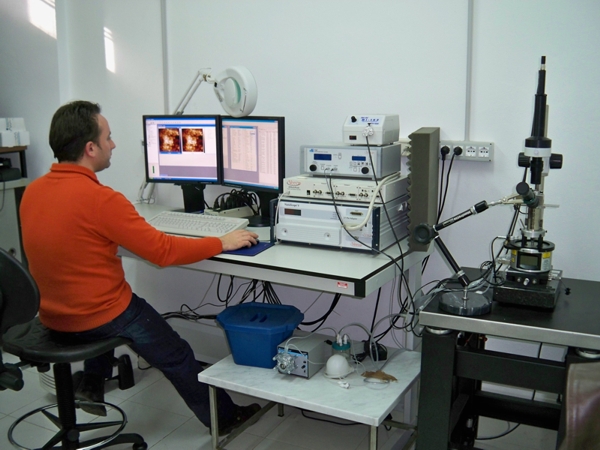Atomic Force Microscopy
Laboratory
DiFi Laboratory
Laboratory directed by: Prof.
Maurizio Leone
AFM technique uses the tip as
a sensor and relies on a scanning technique to produce, in a non destructive
way, very high resolution 3-D images of sample surfaces. Furthermore,
by appropriate choice of the acquisition scheme, it is able to discriminate
among materials of different nature disposed on the same surface. AFM
technique plays a key role in any context in which nanometer size objects
have to be characterized. For this reason in our laboratories it is of fundamental
importance for the morphological characterization of protein aggregates. Indeed, it
permits very easily evaluation of the protein aggregate’ shape distinguishing among
globular and fibrillar aggregates, the details of its surface morphology, their degree
of aggregation and/or agglomeration, etc. Moreover, AFM measurements,
characterize the morphology of the supramolecular assemblies during the aggregation pathway.
|
Atomic
Force Microscope Scanners: Vertical resolution: 0.05nm (maximum),
0.1nm (typical). Lateral resolution:
(limited by the finite tip size): 0.2nm (maximum), 4-20nm
(typical).
|
|
This laboratory is integrated in MeSIAM - Regional Laboratory of CNISM
